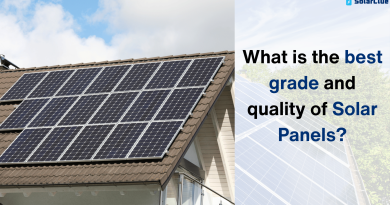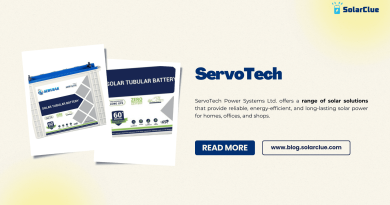Solar Panel For Home Price
Table of Contents As global warming and climate change continue to pose significant threats to our planet, more and more homeowners are exploring ways to promote sustainability. Solar panels offer an innovative, eco-friendly solution to energy consumption. Through harnessing the power of the sun, homeowners can reduce their carbon footprint and save money on utility bills. However, many potential buyers hesitate when considering the initial investment. In this article, we will shed light on how much solar panels for homes cost and outline important factors that affect their price. Solar panels, also known as photovoltaic panels, convert sunlight into electrical energy using a scientific process called photovoltaics. This energy can be used to power appliances and systems within a home, reducing reliance on traditional energy sources. Today, solar panels are more efficient and affordable than ever before, and they represent an important component of sustainable living. Solar panel prices can be affected by various factors. The size of the system, its energy output, the quality of the solar cells, the type of installation, and the brand can all influence the overall cost. Additionally, geographical location can play a significant role because solar panel performance is directly related to sunlight intensity. Therefore, the more sunlight a location receives, the fewer solar panels are needed, which could potentially lower the cost. One of the key factors determining the cost of solar panels for homes is the size of the system. Naturally, larger systems with higher energy output require more panels, and hence, cost more. However, the price per watt typically decreases as the system size increases due to economies of scale. Consequently, homeowners should base the size of their solar panel system on their household’s energy consumption to ensure optimal performance and cost efficiency. The quality of the solar panels is another critical factor. Higher quality panels tend to have a better solar efficiency rate, which means they can produce more electricity from the same amount of sunlight compared to low efficiency panels. While higher quality solar panels may be more expensive initially, they often yield better long-term value through superior performance and longer lifespan. The amount of sunshine your location receives is pivotal. Homes situated in areas with abundant annual sunlight such as Arizona or California, will derive maximum benefit from a solar panel system, hence requiring fewer panels. Fewer panels mean lower initial setup costs. Conversely, homes in areas with less sunlight may require more panels to generate the same amount of electricity, increasing the cost significantly. The installation process is also a considerable part of the overall cost. It includes labor, design, permitting, and inspection costs. Although it might be tempting to install the panels yourself to save on these costs, it’s recommended to hire a professional to ensure the job is done correctly and safely. Making an error during installation can lead to poor performance and shorten the lifespan of the panels. Fortunately, the cost burden of solar panels can be offset by various federal, state, and local incentives. In the United States, for example, homeowners can benefit from the federal solar tax credit, which allows them to deduct a portion of the cost of the solar system from their federal taxes. Additionally, some states offer additional tax credits and rebates, making solar panels an even more affordable option. While the initial cost of solar panels may seem steep, it’s worth noting that they’re a long-term investment that not only reduces your carbon footprint but also generates substantial savings over time. By considering factors such as size, quality, and location, homeowners can find a solar panel system that fits their budget while meeting their sustainability goals. So, even though the initial cost may be daunting, the benefits of lower utility bills, tax savings, and promoting a cleaner environment make solar panels a worthwhile investment for any home.Introduction to Solar Panels For Homes
Understanding Solar Panels
Price Factors of Solar Panels for Homes
The Size of the Solar Panel System
Quality of Solar Panels
Geographical Location
The Cost of Solar Panel Installation
Tax Credits and Incentives
Conclusion: The Worthwhile Investment of Solar Panels


